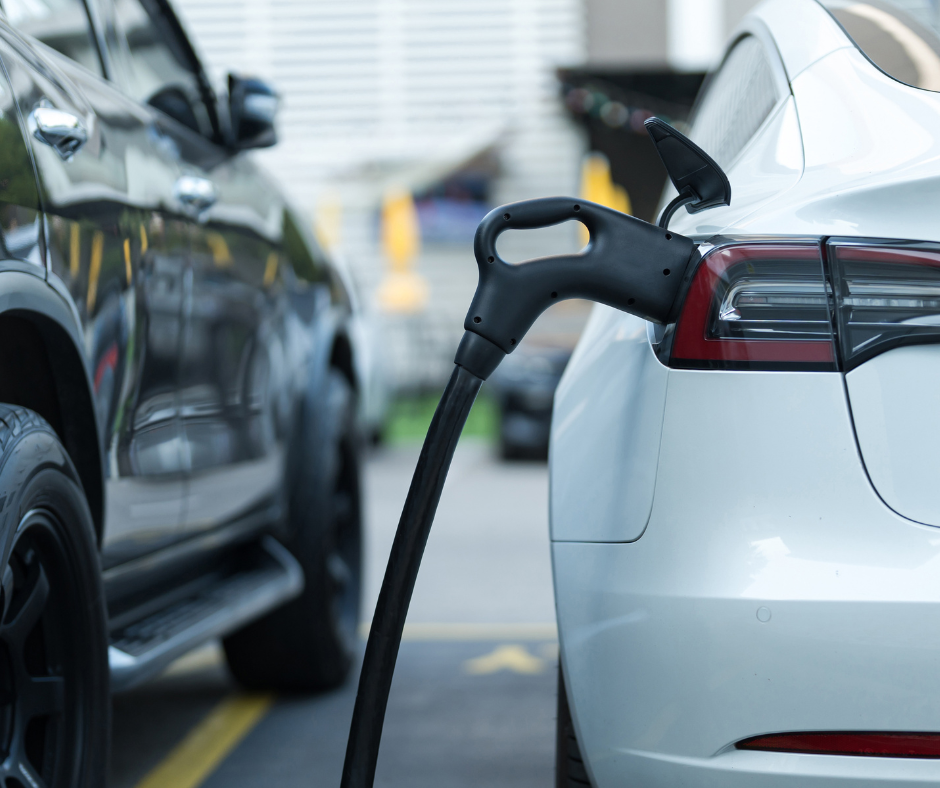EV Mandate Faces Renewed Opposition From Car Dealers

Table of Contents
Financial Concerns Fuel Dealer Resistance to the EV Mandate
The transition to electric vehicles presents significant financial challenges for car dealerships, fueling their resistance to the EV mandate. These challenges stem from high initial investment costs, reduced profit margins on EVs, and a perceived lack of adequate government support for the transition.
High Initial Investment Costs
Adapting to the EV sales landscape requires substantial upfront investments for dealerships. These include:
- Investment in charging infrastructure: Dealerships need to install and maintain a network of charging stations, representing a considerable capital expenditure. The cost varies greatly depending on the number of chargers, their power output, and the necessary grid upgrades.
- Specialized EV mechanic training: EVs require specialized tools, diagnostic equipment, and technical expertise different from traditional internal combustion engine (ICE) vehicles. Training existing mechanics and recruiting new ones with EV expertise is expensive.
- Inventory adjustments to accommodate different EV models: Dealerships need to allocate space for EV inventory, potentially requiring modifications to their existing facilities. This also involves managing different battery types and charging requirements.
- Marketing and sales training focused on EV technology: Educating sales staff on EV features, benefits, charging infrastructure, and addressing customer concerns is crucial but adds to training costs.
Reduced Profit Margins on EVs
Dealerships also face reduced profit margins when selling EVs compared to gasoline-powered vehicles. This is due to several factors:
- Lower service revenue compared to gasoline-powered vehicles: EVs have fewer moving parts, resulting in less frequent and less extensive maintenance compared to ICE vehicles, impacting service revenue.
- Competitive pricing pressures in the burgeoning EV market: The EV market is highly competitive, with manufacturers often prioritizing market share over immediate profits, squeezing dealer margins.
- Uncertainty regarding future government incentives and subsidies: The availability and level of government incentives can fluctuate, creating uncertainty for dealerships regarding their long-term profitability in the EV sector.
Lack of Government Support for Transition
Many dealerships feel the government isn't providing sufficient support to ease their transition to EV sales. This lack of support manifests in several ways:
- Insufficient funding for dealer training and infrastructure upgrades: Government grants and subsidies for EV infrastructure development and dealer training are often insufficient to cover the actual costs.
- Bureaucratic hurdles and complicated application processes for incentives: Accessing government incentives is often a complex and time-consuming process, discouraging some dealerships from even applying.
- Inconsistent policy implementation across different regions: Variations in EV mandates and incentives across different states or provinces create confusion and make national-level planning difficult for dealerships.
Operational Challenges of the EV Mandate for Dealers
Beyond the financial concerns, the EV mandate poses several operational challenges for dealerships:
Inventory Management Difficulties
Balancing the demand for gasoline and electric vehicles creates significant inventory management complexities:
- Storage and handling of EV batteries require special considerations: EV batteries require specific storage conditions to prevent damage and ensure safety.
- Managing the longer lead times for EV deliveries compared to ICE vehicles: The supply chain for EV components can be less reliable and lead times are often longer, making inventory forecasting more challenging.
Specialized Training Requirements
The shift to EVs demands specialized training for dealership technicians:
- The need for technicians to be proficient in both electric and combustion engine repair: Dealerships need to invest in training to upskill their workforce to handle both types of vehicles.
- Recruiting and retaining qualified EV technicians: Finding skilled EV technicians is challenging, leading to increased competition for talent and higher wages.
- The cost of extensive training programs for existing staff: Investing in comprehensive EV training programs is costly and can disrupt existing service operations.
Changes to Sales and Customer Service
Selling and servicing EVs requires adapting sales strategies and customer service approaches:
- Adapting sales strategies to educate customers on EV technology and benefits: Sales staff need to be knowledgeable about EV technology, charging options, and address customer concerns.
- Providing comprehensive charging infrastructure advice to customers: Dealerships play a crucial role in guiding customers on home charging options and public charging networks.
- Handling customer concerns regarding charging range anxiety and battery life: Addressing customer anxieties about EV range and battery longevity is essential for successful EV adoption.
The Political Landscape and Lobbying Efforts Against the EV Mandate
The opposition to the EV mandate is also heavily influenced by political factors and lobbying efforts:
Influence of Automotive Industry Lobbying Groups
Powerful lobbying groups representing dealer associations and automotive manufacturers are actively working against stringent EV mandates:
- Arguments focusing on the economic impact on dealerships and consumers: Lobbying efforts often highlight the potential negative economic consequences of rapid EV adoption.
- Concerns over job losses in the transition to EVs: Job security concerns within the traditional automotive sector are frequently raised as a point of opposition.
Political Divisions and Opposition to Government Regulations
The EV mandate also faces political opposition from those who question government intervention in the market:
- Concerns regarding potential negative impacts on rural areas and communities dependent on the automobile industry: The economic implications of the transition on specific regions are a major point of contention.
- Debate over the effectiveness of government intervention in the market: The efficacy and necessity of government mandates in driving EV adoption are frequently debated.
Conclusion
The renewed opposition to the EV mandate from car dealers underscores the complexities involved in the transition to electric vehicles. Addressing the legitimate financial and operational concerns of dealerships is crucial for the successful implementation of EV policies. Open dialogue and collaboration between government agencies, manufacturers, and dealerships are essential to find solutions that support both environmental goals and economic viability. Ignoring the concerns of this powerful sector risks undermining the entire effort. We need collaborative solutions, not further resistance to the crucial shift towards the EV mandate. The future of sustainable transportation depends on it. Finding a balance between environmental responsibility and economic realities is key to a successful transition. Let's work together to achieve a smoother implementation of the EV mandate for a greener future.

Featured Posts
-
 Did Elon Musk Father Amber Heards Twins A Closer Look
May 16, 2025
Did Elon Musk Father Amber Heards Twins A Closer Look
May 16, 2025 -
 Mls Injury Report Key Players Absence Impacts Weekend Fixtures
May 16, 2025
Mls Injury Report Key Players Absence Impacts Weekend Fixtures
May 16, 2025 -
 Dodgers Hyeseong Kim Homer 2 Steals Power Okc Doubleheader Sweep
May 16, 2025
Dodgers Hyeseong Kim Homer 2 Steals Power Okc Doubleheader Sweep
May 16, 2025 -
 Ftc Probe Into Open Ai Examining Chat Gpts Data Practices And Ai Regulation
May 16, 2025
Ftc Probe Into Open Ai Examining Chat Gpts Data Practices And Ai Regulation
May 16, 2025 -
 The Impact Of Ha Seong Kim And Blake Snells Bond On Korean Baseball Players
May 16, 2025
The Impact Of Ha Seong Kim And Blake Snells Bond On Korean Baseball Players
May 16, 2025
